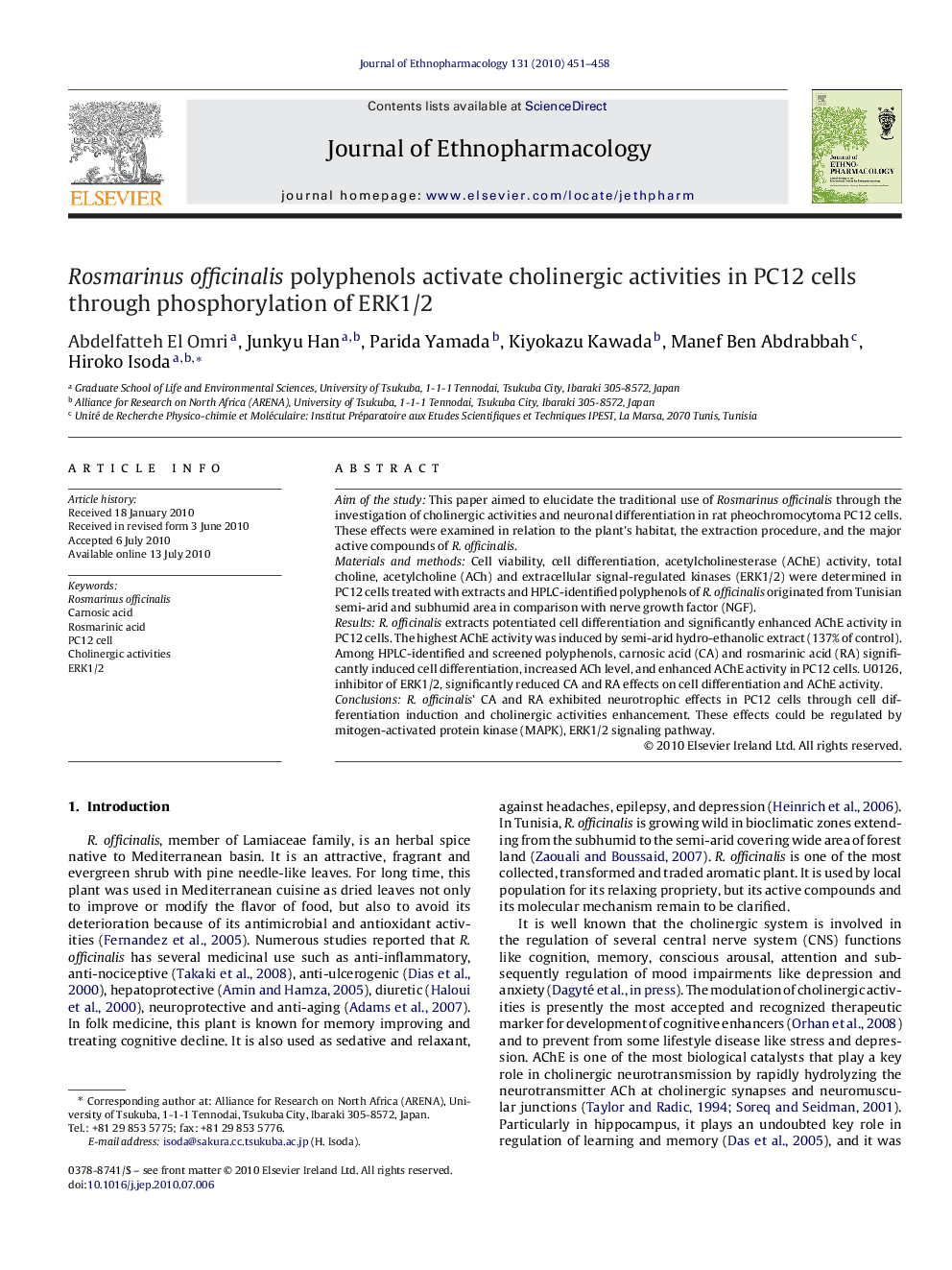| Article ID | Journal | Published Year | Pages | File Type |
|---|---|---|---|---|
| 2545999 | Journal of Ethnopharmacology | 2010 | 8 Pages |
Aim of the studyThis paper aimed to elucidate the traditional use of Rosmarinus officinalis through the investigation of cholinergic activities and neuronal differentiation in rat pheochromocytoma PC12 cells. These effects were examined in relation to the plant's habitat, the extraction procedure, and the major active compounds of R. officinalis.Materials and methodsCell viability, cell differentiation, acetylcholinesterase (AChE) activity, total choline, acetylcholine (ACh) and extracellular signal-regulated kinases (ERK1/2) were determined in PC12 cells treated with extracts and HPLC-identified polyphenols of R. officinalis originated from Tunisian semi-arid and subhumid area in comparison with nerve growth factor (NGF).ResultsR. officinalis extracts potentiated cell differentiation and significantly enhanced AChE activity in PC12 cells. The highest AChE activity was induced by semi-arid hydro-ethanolic extract (137% of control). Among HPLC-identified and screened polyphenols, carnosic acid (CA) and rosmarinic acid (RA) significantly induced cell differentiation, increased ACh level, and enhanced AChE activity in PC12 cells. U0126, inhibitor of ERK1/2, significantly reduced CA and RA effects on cell differentiation and AChE activity.ConclusionsR. officinalis’ CA and RA exhibited neurotrophic effects in PC12 cells through cell differentiation induction and cholinergic activities enhancement. These effects could be regulated by mitogen-activated protein kinase (MAPK), ERK1/2 signaling pathway.
Graphical abstractFigure optionsDownload full-size imageDownload as PowerPoint slide
